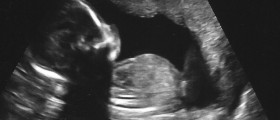
Dizziness is a common occurrence in pregnancy, along with morning sickness, back pain, weight gain and many others. It is characteristic for the first trimester but for many women it can persist throughout the entire course of pregnancy.
Causes of dizziness in pregnancy
Hormonal changes are behind almost all changes and symptoms that occur in a woman’s body during pregnancy, and dizziness and fainting are not an exception. Due to rising hormones, the blood vessels relax and become wider in order to increase the supply to the baby in the womb. However, this also reduces the return of the blood in the veins to the mother, which leads to lower blood pressure, reduction of blood supply to the brain and feeling of dizziness and fainting.
In addition, as the body adapts to the changes of metabolism, the blood sugar levels drop, which also causes dizziness.
In the second trimester, another factor contributing to dizziness is the fact that growing uterus puts pressure on blood vessels. A pregnant woman can feel dizzy throughout the pregnancy when lies down on her back, because in that position the weight of the uterus presses against the vena cava, a large vein that carries blood from the lower body to the heart.
Remedies for dizziness in pregnancy
Dizziness in pregnancy sometimes cannot be avoided but it can at least be alleviated and made more frequent. It helps to avoid standing for long time, and if standing is necessary it helps to move the feet around to increase blood flow. When sitting or laying down, getting up should be slow and not abrupt. Meals should be regular, without long gaps between them. This helps with blood sugar levels and with blood pressure as well. Hot baths and hot showers should be avoided because heat further dilates blood vessels. Clothes should be loose and comfortable so they allow normal blood flow.
These are a few things than can prevent dizziness and fainting spells. If they do occur, sitting or lying down for a while can help, as well as deep, calm and slow breathing. It also helps to open the windows and let the cool, fresh air in, to loosen the clothes and have a glass of water with a slice of lemon.
Dizziness in late pregnancy is fairly normal, but if accompanied by bleeding from vagina and abdominal pain, it is best to see a doctor because it may be a sign of a complication, such as ectopic pregnancy, abruption of placenta or low-lying placenta.















Your thoughts on this
Loading...